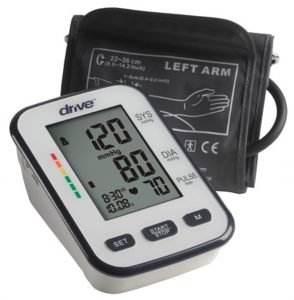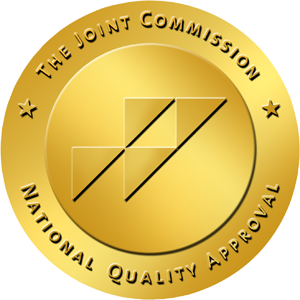Heart Health: Monitoring Your Blood Pressure at Home
February is American Heart Month, a time when you can focus and plan on taking better care of your cardiovascular health. Monitoring your blood pressure at home as part of your self-care routine, can help you keep your blood pressure in a healthy range and reduce your risk of heart disease.
High blood pressure decreases your quality of life. Its long-term risks include damage to blood vessels – and LDL (bad) cholesterol accumulating along tears in the arteries. According to the American Heart Association, high blood pressure that is undetected or uncontrolled over time can lead to:
- Heart attack — High blood pressure damages arteries that can become blocked and prevent blood flow to the heart muscle.
- Stroke — High blood pressure can cause blood vessels in the brain to clog more easily or even burst.
- Heart failure — The increased workload from high blood pressure can cause the heart to enlarge and fail to supply blood to the body.
- Kidney disease or failure — High blood pressure can damage the arteries around the kidneys and interfere with their ability to filter blood effectively.
- Vision loss — High blood pressure can strain or damage blood vessels in the eyes.
- Sexual dysfunction — High blood pressure can lead to erectile dysfunction in men or lower libido in women.
- Angina — Over time, high blood pressure can lead to heart disease or microvascular disease (MVD). Angina, or chest pain, is a common symptom.
- Peripheral artery disease (PAD) — Atherosclerosis caused by high blood pressure can cause a narrowing of arteries in the legs, arms, stomach and head, causing pain or fatigue.
Should I Buy a Blood Pressure Monitor?
The American Heart Association recommends self-measured blood pressure monitoring for all people with high blood pressure. Home monitoring helps the healthcare provider determine whether treatments are working; it is not a substitute for regular visits to the doctor’s office. Checking and managing your blood pressure, understanding symptoms and risks, making heart-healthy lifestyle changes, taking medication as prescribed and working with your doctor can control high blood pressure. Recording your blood pressure readings in a log or journal over time can help you work with your physician to ensure that your treatments to lower high blood pressure are effective.
Choosing a blood pressure monitor
The American Heart Association recommends an automatic, cuff-style, bicep (upper-arm) monitor that has been validated and comes with the correct cuff size for you. Wrist and finger monitors are not recommended because their readings are less reliable. A blood pressure monitor selected for a senior, pregnant woman or child, also must be validated. People with atrial fibrillation or other arrhythmias should consult with a healthcare provider to recommend a monitoring method that works for them.
Carmichael’s locations carry the Drive Deluxe Automatic Blood Pressure Monitor, which is reliable and perfect for on-the-go readings. It has World Health Organization (WHO) classification and irregular heartbeat detection. The monitor features an easy-to-read screen, a date and time display, a pulse rate indicator, an auto-off function and more. The device also comes with an upper arm cuff and a travel bag.





 Accredited/Certified by The Joint Commission
Accredited/Certified by The Joint Commission